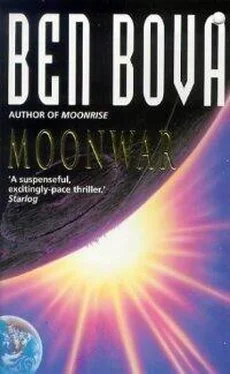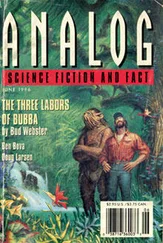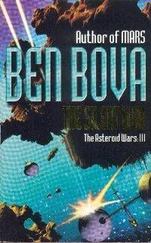Ben Bova - Moonwar
Здесь есть возможность читать онлайн «Ben Bova - Moonwar» весь текст электронной книги совершенно бесплатно (целиком полную версию без сокращений). В некоторых случаях можно слушать аудио, скачать через торрент в формате fb2 и присутствует краткое содержание. Год выпуска: 1997, ISBN: 1997, Издательство: Hodder & Stoughton, Жанр: Фантастика и фэнтези, на английском языке. Описание произведения, (предисловие) а так же отзывы посетителей доступны на портале библиотеки ЛибКат.
- Название:Moonwar
- Автор:
- Издательство:Hodder & Stoughton
- Жанр:
- Год:1997
- ISBN:0-340-68250-7
- Рейтинг книги:4 / 5. Голосов: 1
-
Избранное:Добавить в избранное
- Отзывы:
-
Ваша оценка:
- 80
- 1
- 2
- 3
- 4
- 5
Moonwar: краткое содержание, описание и аннотация
Предлагаем к чтению аннотацию, описание, краткое содержание или предисловие (зависит от того, что написал сам автор книги «Moonwar»). Если вы не нашли необходимую информацию о книге — напишите в комментариях, мы постараемся отыскать её.
Douglas Stavenger and his dedicated team of scientists are determined to defend their life’s work, but technology-hating factions on Earth want to close the flourishing space colony, Moonbase. Can a combination of military defence and political wisdom save the colony?
Moonwar — читать онлайн бесплатно полную книгу (весь текст) целиком
Ниже представлен текст книги, разбитый по страницам. Система сохранения места последней прочитанной страницы, позволяет с удобством читать онлайн бесплатно книгу «Moonwar», без необходимости каждый раз заново искать на чём Вы остановились. Поставьте закладку, и сможете в любой момент перейти на страницу, на которой закончили чтение.
Интервал:
Закладка:
“Ugh!” said Joanna.
“Don’t knock them,” Doug insisted. “They might turn out to be our best ally in this.”
“Our only ally,” said Brudnoy.
“Okay, okay, so we declare independence,” Anson cut in. “Then what?”
“If Faure refuses to recognize us we appeal to the World Court,” said Doug.
Joanna agreed. “Tie him up legally and wait for world opinion to come over to our side.”
“Lots of luck,” Brudnoy mumbled.
“Do you think it’ll work?” Anson wondered.
“It’s got to,” said Joanna.
“Jinny,” said Doug, pointing a finger in her direction, “I want you to take over as base director.”
“Me? Why? I haven’t been behind that desk in almost eight years!”
Grinning at her, Doug said, “You know more about what’s going on in these tunnels than I do. Don’t try to deny it.”
“But I’ve got the university to run,” she protested. “And what’re you going to be doing?”
“The university’s going to be in hibernation as long as Earthside isn’t allowed to communicate with us. Your students won’t be able to talk to you.”
“But you…?”
“I’ve been studying military history ever since Faure was elected secretary-general,” Doug said. “One thing I’ve learned is that we’re going to need somebody to give his undivided attention to this crisis. I can’t be running the day-to-day operation of Moonbase and handle the war at the same time.”
“You said it’s not a war,” Joanna said sharply.
“Not a shooting war,” Doug admitted. “Not yet. But we’ve got to be prepared for that possibility.”
“You can’t—”
“He’s right,” Brudnoy said, interrupting his wife. “Doug should devote his full attention to this situation.”
“And I’m gonna be base director again,” Anson said. She did not seem displeased with the idea.
“So you will be our generalissimo,” said Brudnoy, pointing at Doug. “Jinny becomes base director once again. And you, dear wife,” he turned to face Joanna, “must serve as our foreign secretary, in charge of diplomatic relations with Masterson and the other corporations.”
“And what will you be doing, Lev?” Joanna asked her husband.
“Me?” Brudnoy’s shaggy brows climbed halfway to his scalp. “I will remain as usual: nothing but a peasant.”
“Yeah, sure,” Anson chirped.
Brudnoy shrugged. “I have no delusions of grandeur. But I think it will be important to keep the major corporations on our side.”
“I’ll handle relations with Masterson Corporation,” Joanna agreed. “We’ll try to put some pressure on the government in Washington to oppose this U.N. takeover.”
“If you can keep the board on our side,” Doug said.
His mother raised an imperious brow. “I told you, don’t worry about the board.”
“Or Rashid?”
“Or Rashid either,” Joanna riposted. Turning slightly toward her husband, she added, “Rashid’s a man with real delusions of grandeur.”
“Okay,” said Jinny Anson. “Then I’ll run the base and you, Doug, you can run the war.”
“Thanks a lot.”
“Somebody’s got to—”
“Hold it!” Doug snapped. The message icon on his left screen was blinking. Urgent message. And he saw that a cardinal red dot had cleared the swarm of low-orbit satellites around the Earth and was heading outward.
“Message,” Doug called out in the tone that the computer recognized. His voice trembled only slightly.
“A crewed spacecraft just lifted from the military base on Corsica,” a comm tech’s voice said. “It’s on a direct lunar trajectory.”
“Peacekeeper troops,” Doug said.
“Must be.”
They all turned toward Doug.
“So what do we do now, boss?” Jinny Anson asked.
TOUCHDOWN MINUS 114 HOURS 35 MINUTES
“Five days,” Doug said to the woman’s image on his screen. “They’ll be here in a little less than five days.”
Tamara Bonai frowned slightly, nothing more than a faint pair of lines between her brows. But on her ethereally beautiful face it seemed a gross disfigurement. Her face was a sculptor’s dream, high cheekbones and almond eyes; her skin a light clear teak; her long hair a tumbling cascade as lustrous and black as the infinity of space.
Like Doug, she was seated behind a desk. Her life-sized image on the wall in front of him made it look as if Doug’s office opened onto her office on Tarawa: lunar rock and smart walls suddenly giving way to Micronesian ironwood and bamboo.
“When I visited Moonbase,” she said, “the trip took only one day.”
“We brought you up on a high-energy burn,” said Doug. “The Peacekeepers are coming on a minimum-energy trajectory.”
It took almost three seconds for his words to reach Earth and her reply to get back to his office at Moonbase. Usually Doug relaxed during the interval but now he sat tensely in his padded swivel chair.
Bonai smiled slightly. “The Peacekeepers are trying to save money by taking the low-energy route?”
Doug forced a laugh. “I doubt it. I think they want to give us as much time as possible to think things over and then surrender.”
Her lips still curved deliciously, Bonai asked, “Is that what you will do: surrender?”
“No,” said Doug. “We’re just about self-sufficient now. We can get along without Earth for a long while.”
If she was surprised by Doug’s answer, it did not show on her face. Doug wondered if anyone was eavesdropping on their conversation. It was being carried by a tight laser beam, but still the tightest beam spread a few kilometers across over the four-hundred-thousand-kilometer distance between the Earth and the Moon. The island of Tarawa was tiny, but still big enough for Rashid or someone else to pick up the beamed signal.
“You are prepared to fight Peacekeeper troops?” she asked.
“We’re not going to surrender Moonbase to them.”
She seemed genuinely worried. “But they will have guns … other weapons. What weapons do you have?”
“There isn’t even a target pistol in all of Moonbase,” Doug admitted. “But we’ve got some pretty good brains here.”
Once she heard his words, she shook her head slightly. “You can’t stop bullets with words.”
“Maybe we can,” Doug said. Not waiting for a response from her, he went on, “We’re going to declare our independence and apply to the General Assembly for admission to the U.N.”
Her delay in responding to him was longer than three seconds. At last Bonai said, “It’s my fault, isn’t it? You’re in this trouble because I bowed to the U.N.’s pressure and signed the nanotech treaty.”
“You did what was best for your people,” Doug replied. “You did what you had to do.”
Masterson Corporation had owned and operated Moonbase from its beginning as a set of half-buried shelters huddled near the mountain ringwall of the giant crater Alphonsus. Nanotechnology made it possible for the base to grow, and begin to prosper.
Virus-sized nanomachines scoured the regolith of Alphonsus’ crater floor, extracting oxygen and the scant atoms of hydrogen that blew in on the solar wind. Once ice fields were discovered in the south polar region, nanomachines built and maintained the pipeline that fed water across more than a thousand kilometers of mountains and craters. Nanomachines built solar cells out of the regolith’s silicon, to supply the growing base with constantly increasing electrical power. Nanomachines had built the mass driver that launched payloads of lunar ores to factories in Earth orbit.
And nanomachines took carbon atoms from near-Earth asteroids and built Clipperships of pure diamond, Moonbase’s newest export and already its principal source of cash flow. Diamond Clipperships were not only the world’s best spacecraft; they were starting to take over the market for long-range commercial air flight on Earth.
Читать дальшеИнтервал:
Закладка:
Похожие книги на «Moonwar»
Представляем Вашему вниманию похожие книги на «Moonwar» списком для выбора. Мы отобрали схожую по названию и смыслу литературу в надежде предоставить читателям больше вариантов отыскать новые, интересные, ещё непрочитанные произведения.
Обсуждение, отзывы о книге «Moonwar» и просто собственные мнения читателей. Оставьте ваши комментарии, напишите, что Вы думаете о произведении, его смысле или главных героях. Укажите что конкретно понравилось, а что нет, и почему Вы так считаете.












